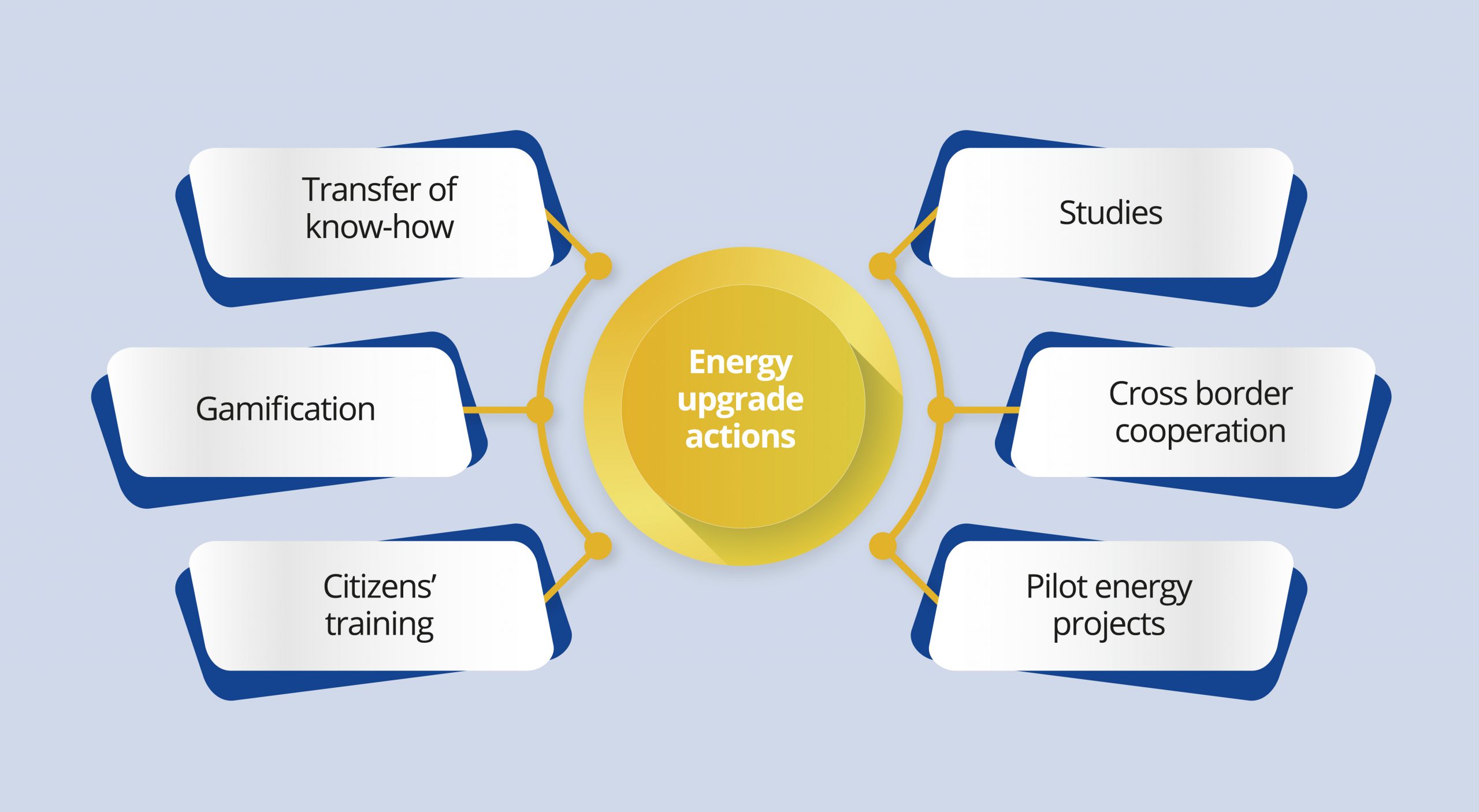Project Scope
Objectives
The overall objective of the SOLIS Project is to reduce energy consumption through the RES utilization and more energy efficient lifestyles, thus promoting a sustainable regional development.
Within this context, SOLIS Project is fully aligned with Program’s Specific Objective to increase energy-efficiency and the use of RES.
In addition, the project aims to:
1. promote climate change mitigation by taking advantage of the characteristics and strengths of the border areas concerning the utilization of the RES potential
2. promote technology transfer of Zero Net Energy (ZNE) or nearly Zero Energy Building (NZEB) in the Cross-Border area
3. communicate and disseminate the benefits of local RES utilization and the NET metering approach for public services and households
4. promote public awareness about energy efficiency on both sides of the border, taking into consideration the needs and opportunities of the area
5. actively engage the general public to energy efficient lifestyles, promoting low-cost investments and energy efficiency awareness and changing attitudes towards environmental issues
Expected outputs
The project’s main outputs is the increased utilization of RES in the public sector and therefore the overall reduced energy consumption in public buildings, and the increased population awareness with regards to the energy efficiency
The outputs of the SOLIS Project are expected to be:
- Two small scale RES and energy efficiency investments as pilot demonstration projects contributing to actual measurable energy savings.
- Technology Transfer Studies to assess the transferability of Zero Net Energy (ZNE) or nearly Zero Energy Building (NZEB) technologies in buildings of the respective municipalities.
- Development of a localized educational toolkit on RES and energy efficiency tailored to the specific characteristics, challenges and opportunities of the CB area.
- Teachers and other education professionals trainings on RES and energy efficiency that will focus on the utilization of the specialized educational toolkit (S04, 5)
- A RES and Energy Efficiency awareness platform that will utilize gamification to engage users in to real life energy conservation, including public leader boards in which users can compete against friends, challenges and level system. The platform will be linked with the website to provide real time data about the decrease of energy consumption from the users
- A board game for energy efficiency for +9-99
- A website that will give real time data on Electricity Production from the small scale RES investments
- A campaign to recruit users in the platform in Social and Conventional Media
- A series of promotional actions: multilingual information material (brochures, information kits and leaflets); a closing conference.

